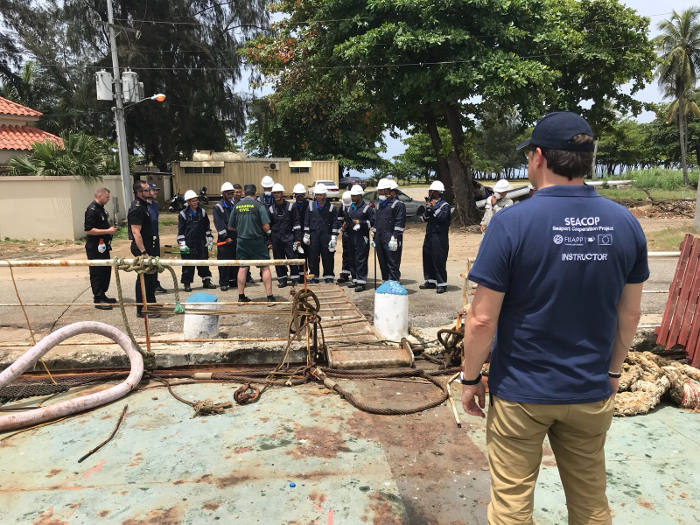
22/11/2021
The 5th phase of SEACOP, the port cooperation project to support the fight against illicit maritime traffic in Africa and Latin America and the Caribbean, begins.

The 5th phase of SEACOP, the port cooperation project to support the fight against illicit maritime traffic in Africa and Latin America and the Caribbean, begins.
Alberto Morales, Inspector Jefe de la Policía Nacional y experto clave del proyecto de cooperación portuaria, SEACOP, nos relata la evolución de las cuatro fases del proyecto de cooperación europea, que está a punto de finalizar.
For more than 10 years, the European port cooperation project, SEACOP, has been fighting, mainly, maritime cocaine trafficking. The project started its work in Senegal, Ghana and Cape Verde. But the routes used to transport the drug from Latin America to Africa required intervention in the transit countries and from there the need arose to make the leap to the Caribbean and Latin America in later phases.
This year its 5th phase has begun, to continue the work for another three years in both regions. The project’s main objective is to support the fight against illicit maritime traffic and associated criminal networks in Africa and Latin America and the Caribbean, while respecting human rights.
The project aims to work in three directions. The first, to strengthen the effectiveness of the maritime intelligence and maritime control network both geographically and technically. Furthermore, to integrate knowledge and experiences on maritime threats and prohibitions derived from illicit trafficking routes and, finally, work will be done on improving cooperation and the exchange of information at the national, regional and trans-regional levels, including EUROPOL and FRONTEX.
This phase began with a meeting opened by Natalie Pauwels, Head of the Stability and Peace Unit: Global and Trans-regional Threats, of the European Commission, who underlined the commitment of the European Union in the specific effort in the maritime component in its strategy against organised crime. She also recalled the long history and achievements of the SEACOP project, which started in 2010.
During the execution of the project, priority countries in both Africa and Latin America and the Caribbean will be established, both as countries of origin and transit. In addition, although cocaine represents the majority of the illicit transatlantic traffic and therefore will continue to be the project’s priority, SEACOP V will also tackle other illicit traffic, such as wood and medicines, among others.
SEACOP V is a project funded by the European Union whose implementation is led by Expertise France and will be carried out in West Africa, Latin America and the Caribbean. FIIAPP will coordinate activities in Latin America, relying on specialists from the Policía Nacional to carry them out.


